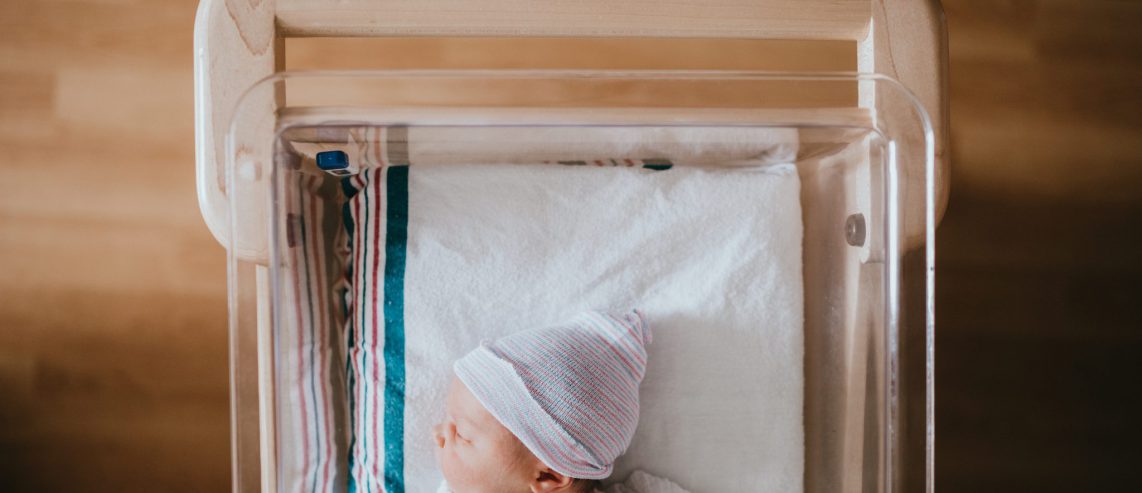Whether you’re planning for a baby or you’ve already welcomed one, your baby’s first doctor visit has probably been on your mind. This is an exciting time in your life and your baby’s, marking the beginning of many millstones.
As you prepare for your baby’s first doctor visit, you’re likely wondering what happens at this appointment, why it is important to attend, and what you should bring.
Here’s how to prepare for baby’s first doctor visit and the importance of a newborn well child visit.
Never Miss a Beat!
Subscribe to Our HealthBeat Newsletter!
Thank you for subscribing!
You can now select the specific newsletters you'd like to receive.
You are already subscribed.
Subscribe to more newsletters in our email preference center.
Sorry, an error occurred. Please try again later.
Get Healthy Tips Sent to Your Phone!
What Is a Newborn Well Child Visit?
Your baby’s first doctor visit is slightly different from the newborn well child visit. Your baby’s first doctor visit will happen shortly after birth—likely within the first 24 hours. The doctor will:
- Assess baby’s reflexes and appearance (malformations).
- Check for jaundice.
- Examine your baby’s general health.
- Look for signs of infection.
- Monitor breathing.
You will be instructed to follow up with a doctor for a newborn 7-day checkup to review their progress. This visit may happen sooner if your baby has jaundice, weight or feeding issues, or other health concerns.
The newborn 7-day checkup launches a screening process to oversee your child’s growth and development at specific age intervals. This screening process is known as well child visits, the newborn well child visit being the first.
Why is attending a newborn well child visit so important?
Attending a doctor’s appointment might seem unnecessary if your baby is doing well and appears healthy, but these checkups are important for their long-term health. Developmental delays, sensory impairments, and behavior problems can be detected early because of regular well child visits.
A 2023 study published in BMC Pediatrics says developmental delay is one of the most frequent disorders in early childhood (about 15%). The study also states the average age of children needing early intervention was 39.3 months old.
Early intervention prevents problems from occurring and tackles them head-on when they do. Detecting issues early on reduces barriers your child may face and promotes their individual strengths and abilities.
What Happens at the Newborn Well Child Visit?
As you prepare for your newborn well child visit, especially the newborn 7-day checkup, gather information to make your baby’s first doctor visit a breeze. Things to bring along include:
- Blanket.
- Diapers and wipes.
- Extra clothes.
- Feeding essentials like a bottle, breast pump, or nursing blanket.
- Feeding journal.
- Hospital paperwork. This is especially important if your baby has a health concern that needs follow-up.
- Insurance card. If your baby doesn’t have their insurance yet, bring yours.
- Pre-registration forms. Office staff may ask you to complete forms about your baby’s health before their newborn well child visit.
Once you’re at the appointment and taken to an exam room, your nurse will collect your forms, ask questions about baby’s progress, and check vital signs, including:
- Blood pressure
- Heart rate
- Height
- Temperature
- Weight
The nurse will ask you to undress your baby to their diaper after the vital check is complete. This allows the doctor to conduct a head-to-toe exam. During the physical exam, your doctor will check for general health and signs of developmental issues, including:
- Head. Your doctor will feel your baby’s head and soft spots (fontanelles) to ensure they’re still soft. Soft spots disappear as a baby grows but can hinder brain development if they close too quickly.
- Hips. Your doctor will rotate baby’s hips and legs to evaluate their hip joint and screen for a developmental problem (dysplasia).
- Reflexes. The reflex exam screens for neurological issues. Your doctor will observe how your baby grasps your finger, fans out their toes when touched, and flings their arms and legs when startled.
- Umbilical cord. Your doctor will examine baby’s belly button to see any signs of infection, including pus or cloudy, foul-smelling drainage or red, warm skin surrounding the area.
Ask any remaining questions after your baby’s physical exam is complete. You can also ask questions or address concerns about your health, too. Your baby’s medical team is a resource and can provide follow-up information or make a referral.
Doctor Discussion Guide: Questions to Ask Your Provider
Your baby’s first doctor visit is as exciting as it is overwhelming. It can be difficult to retain information. Bring a notebook and pen to take notes you may want to reference later.
Some questions to ask include:
- How often should I bathe my baby?
- How often should I change my baby’s diaper?
- How often should I feed my baby? Should I wake my baby to feed them?
- How much should my baby cry?
- How much sleep is appropriate for this age?
- How much spitting up is normal?
- What activities should I do with my baby?
- What is the safest sleeping position?
- What should I do if my baby has a fever?
From your newborn well child visit to immunizations and illnesses, you’ll be seeing a lot of your child’s doctor in the coming years. It’s best to start looking for a doctor about three months prior to your baby’s due date to find the one who best fits your family, lifestyle, and care preferences.
Sources
- Centers for Disease Control and Prevention. Why Act Early if You're Concerned about Development? LINK.
- Centers for Disease Control and Prevention. What is “Early Intervention?" LINK.
- M. Moser, C. Müllner, Ferro, K. et al. BMC Pediatrics. The role of well child visits in detecting developmental delay in preschool children. LINK.
About Pediatrics
From nutrition to illnesses, from athletics to school, children will face many challenges growing up. Parents often will make important health care decisions for them. We hope to help guide both of you in that journey. UPMC Children’s Hospital of Pittsburgh is a national leader in pediatric care, ranking consistently on U.S. News & World Report’s Best Children’s Hospitals Honor Roll. We provide expert treatment for pediatric diseases, along well-child visits, urgent care, and more. With locations across Pennsylvania, Maryland, and West Virginia, you can find world-class care close to home. We also work closely with UPMC Magee-Womens Hospital, a national leader in care for newborns and their mothers. Our goal is to provide the best care for your children, from birth to adulthood and beyond. Visit our website to find a doctor near you.

